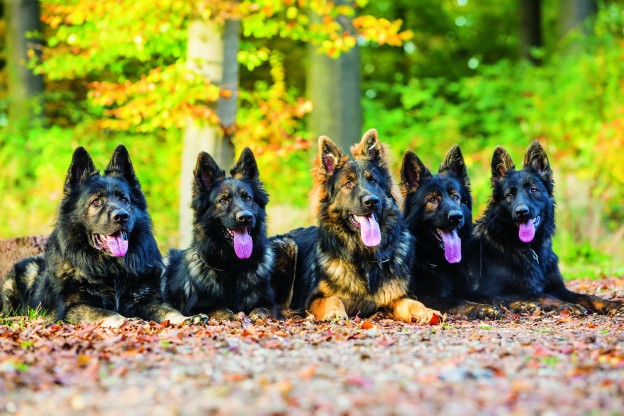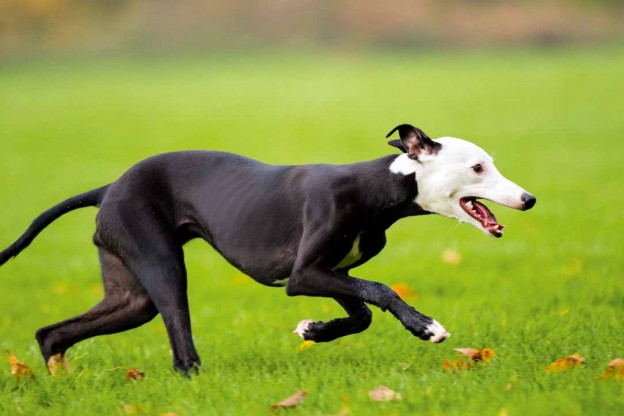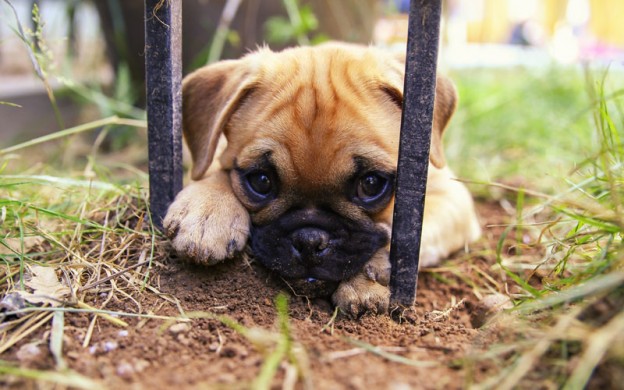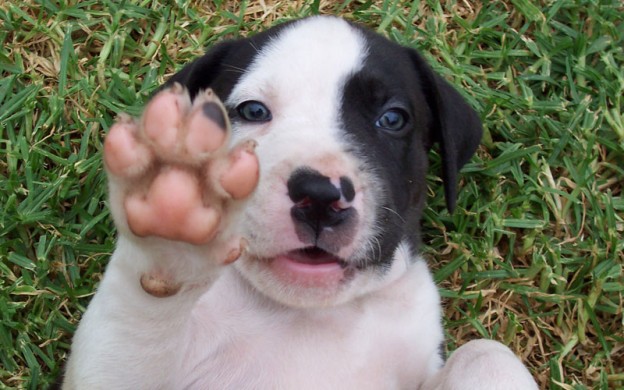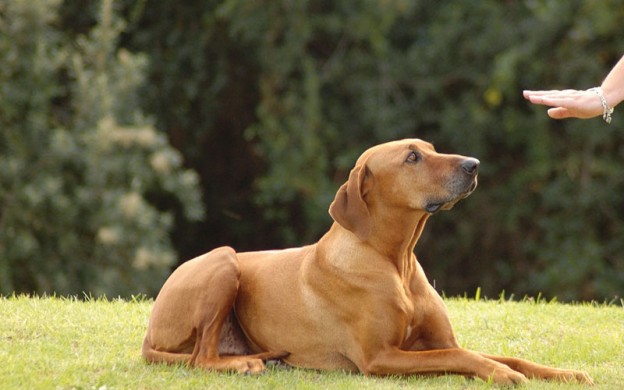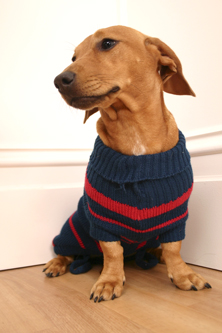
Do you notice a change in your dogs behaviour during the cooler months? Nadia Crightonfinds out why there are winter blues in dogs floating around.
Like humans, dogs can suffer from depression too. A death of a close companion, anxiety-related issues and change of routine/home can all lead to a depressing state of mind in our pooches.
Some dog owners are noticing these depressing states tend to occur during seasonal changes, such as when winter arrives. To find out why dogs can be susceptible to depression during the cooler months, Dogs Life caught up with animal behaviourist Dr Joanne Righetti.
Some dog owners do talk about their dogs having the winter blues, said Righetti. Howe’ver I don’t think this has been strictly proven. In humans, a disorder known as SAD (seasonally affected disorder) can occur during winter months. This is when the amount of serotonin and melonin in their systems drops due to the lack of daylight hours. However, this has not been shown to appear in dogs. Australian dogs, if they are outdoors regularly, should not be suffering from this, Righetti reassured.
Curing the blues
So what is it about winter that can make our pooches so blue? In many cases, this can boil down to exercise. The dog that was once out pounding the pavement every day or enjoying an off-leash dash at the beach may now find himself bored senseless watching the great outdoors from a lounge room window. This can be easily cured! Investing in a good raincoat for you and your dog can turn a boring old winters day into puddle-hopping fun for your friend. If your dog doesn’t like the rain, a few good adventures outside during rainy periods might just be the thing to turn it all around.
Try organised activities, like agility or a training class, Righetti suggested. Or book your dog into a doggy day care centre this is certain to keep him active. Try a day out somewhere new to keep your dog alert or, if your dog is sociable, invite a doggy friend over to play.
Energetic dogs and working dogs are more at risk of depression during these cooler months. It is very important to keep your dog stimulated and to try, when possible, not to change his summer routine. So if he enjoys a long walk every afternoon, try keep this up, regardless of the weather.
If you are unable to take your dog out for his daily exercise due to the shorter daylight hours or a terrible storm, try encouraging a game or some play time in a suitable area.
Keep up your dogs spring and autumn routine, Righetti said. Take him out for a walk at least once a day. Winter time means you can exercise in the middle of the day, unlike summer when it gets too hot. Play games to keep your dogs mind active or even think of training from the comfort of your cosy armchair, in front of the fireplace.
Cheer up your dog with winter day fun!
Why not try some of the following to keep your dog active during a cold winters day?
– Hide-and-seek. Play hide-and-seek with your dog its as easy as putting some yummy treats inside a KONG. Show the KONG to your dog and ask him to sit and stay, then hide the KONG somewhere in the house. Go back to your dog and let him sniff your hands and say find. Start by hiding the toy in easy-to-find places and gradually build up to more difficult challenges. This way you are not only stimulating your dogs nose and brain, he should also get a pretty good workout trotting around the house. There are endless games you can play inside even touching up on your training by popping a lead on your dog can mean 20 minutes of brain stimulation that can make all the difference to a depressed pooch.
– Go for a walk. Walking your dog in the rain can be a fun adventure. The off-leash areas that are normally jam-packed will be empty and you can happily throw the ball while your dog bounds around. Walking on the beach is also great fun in the cold weather. Just make sure you have a towel in the car so you can wipe down Rover. There is nothing better than curling up with your exhausted pal in front of the fire with a hot cup of chocolate after a run on the beach in the cold weather.
– Keep up with the training! Perhaps book your dog in for a refresher course in the winter as many training schools offer indoor training facilities. This has the added bonus of your dog being 100 per cent under control, while also getting adequate exercise and socialisation. A well-trained dog is much less likely to suffer from problems such as boredom as they are also easier to take off leash and lead walk than untrained dogs. (For more training tips and ideas, why not check out Dogs Life March/April 2007s Training Special.)
– Doggy meets. Meet up with some of your doggy friends and have a winter hang out day. Sure, your dog may romp around in the backyard and end up terribly dirty and wet, but hell have so much fun doing so! A quick hose off with a nice warm bucket of water and a towel down will make the journey home much more pleasant.
– Enrol in a doggy daycare. These are great facilities that will allow your dog to become completely exhausted while you are at work. This is a great way to ensure your dog is getting adequate exercise if you cannot provide it during the cooler months. Not only that, it is a great way to socialise your dog. Even enrolling your dog once or twice a week can make a huge improvement to a depressed dog. (Check out the Dogs Life Nov/Dec 2006 issue to read more about doggy daycares.)
– Doggy play. Play with your dog whenever possible. From playful rumbles to the endless array of fun games, or dedicating five minutes every day to new fun training like roll over, play dead or shake, can stimulate your dog inside the house.
Winter considerations
A balanced, high-quality diet is also important during stressful times and can help to boost your dog’s immune system. If your dog spends lots of time outside or working, ensure he receives a good diet but don’t be tempted to overfeed your pooch during winter, Righetti advised.
Dogs don’t really need to eat extra portions through winter. The exception will be working dogs that need extra food, especially if they are out in the elements, she said. A few extra calories wont make too much difference, but repeatedly increasing portion size, as humans are tempted to do themselves, with comfort food over winter will mean dieting in spring!
Righetti also shared some winter care tips:
- Always provide extra bedding and replace doors on kennels.
- An effective way to keep a kennel warm and dry is to line it with straw, as this does not become damp during cool, wet weather. (Try leaving a blanket out overnight in the shelter and see how damp it is in the morning!)
- Ensuring kennels are off the ground and elevated from concrete can also help beat the cold. Better still, why not allow your dog inside to sleep in a warm enclosed place, like the laundry?
Water intake
According to Righetti, dogs drink less water in winter. To combat this, add some warm water to your dogs food or encourage him to drink by adding some beef stock to his water. Adequate exercise will also ensure your dog drinks enough water to keep his kidneys and internal organs healthy.
Some breeds will feel the cold differently when romping outdoors. Dogs with double coats (like Alaskan Malamutes) will love a run outside in the cold much more than a Chihuahua.
Righetti also advised putting waterproof coats on short-coat breeds when playing outside, and to be sensible. Obviously dogs in many Australian cities will enjoy playing outside on a cold winters day much more than dogs in New Zealand or the Australian ski areas, where temperatures can plummet to below zero.
There is nothing better than curling up in front of the fire during these cooler months, but for your dogs mental and physical health, making time for some outdoor fun can make all the difference. It’s also a great way for you and your dog to beat the winter blues and bulge!



